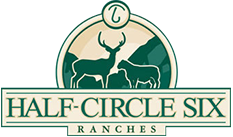Philip's Blog
Dear Dorper Friends,
The rains have come to West Texas and we are blessed at the moment. We are anticipating fall lambs soon and our online sale the first week of October. 2017 has had its ups and downs and we are looking forward to seeing what is in store for us for the balance of the year. One interesting non-sheep related issue is that I am featured in a major upcoming documentary about hunting. It is called Trophy and it is a very controversial film about the many facets of the hunting industry around the world. It will premier in New York and Los Angeles in theaters September 8th then across the country. I have been traveling across the country to film screenings to explain conservation, hunting, and wildlife management to audiences that well let's say are less than enthused about hunting!
Here is the trailer:
Blessings,
Philip Glass
The docking of sheep tails has been "in the news" so to speak lately. Although the practice is thousands of years old the docking of sheep tails is now controversial. There are always people wanting to force others to do things the way they see them. This is especially true when it comes to the animal welfare crowd. That said I do believe we should evaluate from time to time how we raise our sheep. I for one do not mind docking tails and if done correctly it is not detrimental to the sheep's health. Our Dorper sheep do look particluarly nice with a properly docked tail. The issue that I believe is at hand concerns the extreme or club lamb docks that are surgically done. These ultra short docks over time actually look really unnatural and I personally detest them. Many of these sheep will prolapse if they get a cough or are fed to long.
I have stopped docking all my commercial ewes. I have found that they are healthier, breed more regularly, and especially maintain body condition much better than docked ewes. I began this a few years ago on the advice of my good friend Pieter van Schalkwyk from Africa. He had years of records to prove that undocked ewes outperformed docked ewes in most every way possible. Less work and more money who can be against that? I'm not quite ready to stop docking my registered sheep but who knows there may come a day!
So what should we do about it? Should we seek legislation to stop tail docking? Should our sheep shows begin an enforcement mechanism? I for one would like to see extreme docks thrown out of all of our show and sales. This would send a message that we are not against docking but we will not tolerate club lamb, surgical docks in the Dorper world!
Regards,
Philip Glass
I must say the recently completed Sheep & Goat Expo in San Angelo was THE turning point for Dorper Sheep as an industry. The reason I say this is because with 250 attendees and options for wool sheep, goats, club lambs, and hair sheep the vast majority of attendees went to the hair sheep educational sessions. As I was setting up to do a condensed power point presentation on Dorper Sheep the number of people in the stands kept increasing. By the time I was ready to kick off the session I estimate that there were 200 people in attendance. That was 80% of the attendees at this event! This is a testament to the productivity and popularity of Dorper sheep. I have always said that, although many of us worked hard to market Dorper sheep, its the sheep that due to their hardiness, ease of care, and ability to produce a superior product that are due the congratulations.
Over the years I have personally felt extreme predujuice coming from wool sheep breeders. I was pushed aside for so many years by these people who I had nothing but respect for. They were in charge and it didnt matter what us "new guys" were doing. At every meeting we had to apologize by stating "we are not asking you to change sheep breeds" before we could report on the exponential success of our enterprize. I am happy to say this is behind us. Dorpers and their crosses are now approaching 75% of the Texas sheep flock. Now our industry is the one in the lead and it is time we take charge and move on from the past.
What do we do now that we have achieved this goal of being number 1? Its very, very simple. We must maintain what got us here and that is the strict adhereance to the Dorper Breed Standards. We must not allow shows and extreme trends to sway our breeding programs. If we do we are doomed to the same fate as the Boer Goat, now roundly shamed for its poor performance. Lets educate everyone on the merits of our wonderful sheep by attending courses and workshops. Spread the word that the exceptional book Dorpers Into The New Century is now electronically available on Amazon Kindle and the Kindle Ap for iPad so everyone can learn the Dorper Breed Standards and how to apply them.
Dorper Regards,
Philip
